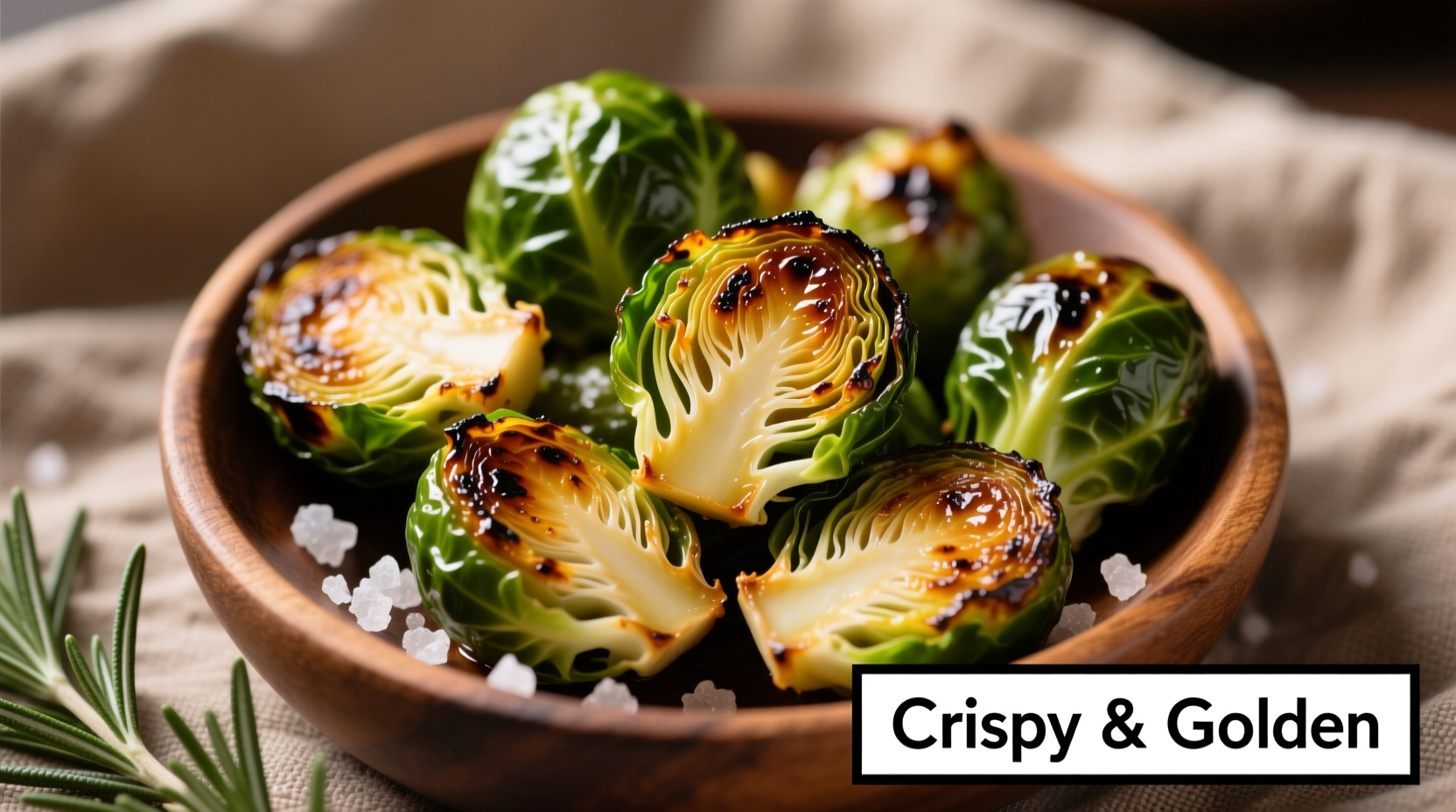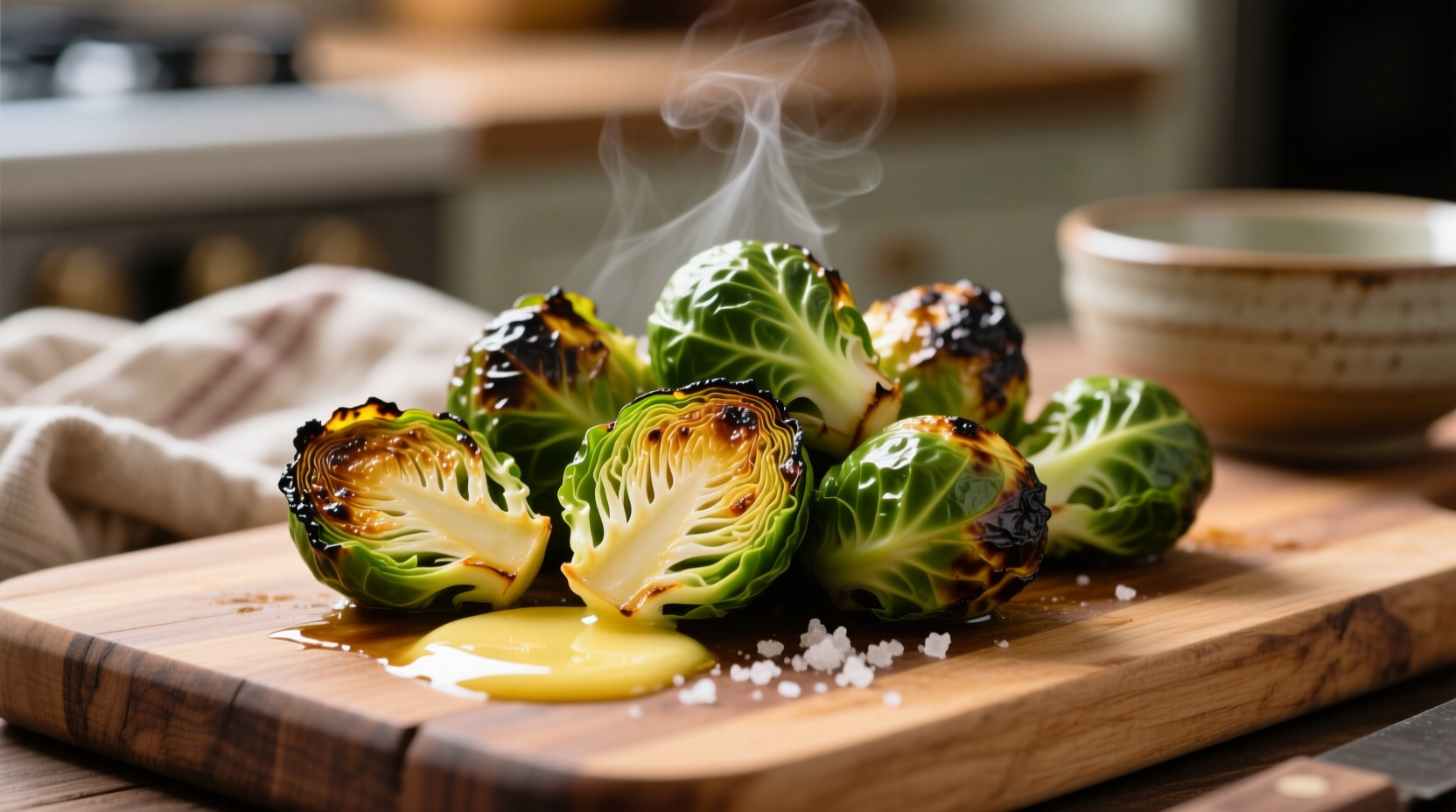If you've ever wondered what do brussel sprouts taste like, you're not alone. These miniature cabbage-like vegetables have a reputation that often precedes them, but understanding their true flavor profile can transform your cooking experience. The key to enjoying Brussels sprouts lies in proper preparation techniques that enhance their natural sweetness while minimizing bitterness.
Understanding the Natural Flavor Profile
Brussels sprouts belong to the Brassica family, which includes cabbage, broccoli, and kale. This botanical relationship explains their shared flavor compounds called glucosinolates. When raw or improperly cooked, these compounds break down into isothiocyanates, creating that distinctive sulfurous, bitter taste many people associate with Brussels sprouts.
According to research from the USDA Agricultural Research Service, the concentration of these compounds varies based on growing conditions, harvest time, and storage methods. Freshly harvested Brussels sprouts from cool climates tend to have milder, sweeter flavors compared to those grown in warmer conditions.
| Preparation Method | Flavor Characteristics | Bitterness Level |
|---|---|---|
| Raw (shaved) | Grassy, peppery, slightly nutty | Moderate |
| Boiled | Sulfurous, cabbage-like, waterlogged | High |
| Steamed | Milder cabbage flavor, slightly sweet | Moderate |
| Roasted | Nutty, caramelized, earthy-sweet | Low |
| Pan-seared | Crunchy exterior, tender interior, balanced sweet-bitter | Low-Moderate |
How Cooking Transforms Brussels Sprouts Flavor
The cooking method dramatically affects what brussel sprouts taste like. When exposed to high, dry heat through roasting or pan-searing, the natural sugars undergo caramelization while the bitter compounds break down more favorably. This Maillard reaction creates complex flavor compounds that transform their profile from potentially unpleasant to deeply satisfying.
Professional chefs at the Culinary Institute of America have found that roasting Brussels sprouts at 400°F (200°C) for 20-25 minutes produces optimal flavor development. The exterior becomes crispy and caramelized while the interior remains tender without becoming waterlogged.
Historical Context of Brussels Sprouts Consumption
Brussels sprouts have evolved significantly in culinary acceptance over centuries. Originally cultivated in the 13th century near Brussels (hence the name), they gained popularity throughout Europe by the 16th century. However, their reputation suffered during World War II when rationing led to overcooking as a preservation method, cementing their association with unpleasant, sulfurous flavors in many cultures.
Modern culinary techniques have revived their popularity, with contemporary chefs treating them with the same care as other premium vegetables. This evolution explains why many people's childhood memories of what do brussel sprouts taste like differ dramatically from current gourmet preparations.
Practical Tips for Perfect Brussels Sprouts
To achieve the best flavor from Brussels sprouts, follow these professional chef recommendations:
- Select fresh specimens: Choose firm, compact sprouts with tight leaves and no yellowing
- Store properly: Keep in a perforated plastic bag in the refrigerator crisper drawer for up to 10 days
- Prep correctly: Trim the stem end and remove any loose or damaged outer leaves
- Cut uniformly: Halve or quarter larger sprouts to ensure even cooking
- Don't overcrowd the pan: Give sprouts space to caramelize rather than steam

Flavor Pairings That Enhance Brussels Sprouts
Certain ingredients naturally complement and balance what brussel sprouts taste like. The bitterness responds well to:
- Acidic elements: Lemon juice, balsamic vinegar, or apple cider vinegar cut through bitterness
- Sweet components: Maple syrup, honey, or roasted apples balance natural bitterness
- Salty accents: Crispy bacon, pancetta, or Parmesan cheese add umami depth
- Warm spices: Nutmeg, smoked paprika, or cumin enhance earthy notes
When exploring how to make brussels sprouts taste better, consider the chemistry of flavor pairing. The bitterness receptors on your tongue respond positively to both sweet and salty elements, which is why combinations like roasted Brussels sprouts with balsamic glaze and bacon have become so popular in contemporary cuisine.
Addressing Common Flavor Misconceptions
Many people believe Brussels sprouts are inherently unpleasant, but this perception usually stems from improper preparation rather than the vegetable itself. The key to enjoying them lies in understanding that why do brussels sprouts taste bitter when overcooked but develop complex, sweet flavors when prepared correctly.
Food science research from the University of California shows that cooking Brussels sprouts in an alkaline environment (like adding baking soda to boiling water) actually increases bitterness by accelerating the breakdown of glucosinolates into more bitter compounds. This explains why certain traditional cooking methods produce less desirable results.
Seasonal Variations in Flavor
The taste of Brussels sprouts changes throughout the growing season. Those harvested after the first frost develop higher sugar content as the plant converts starches to sugars for winter survival. This natural process, called "cold sweetening," explains why what brussel sprouts taste like in late fall and winter is noticeably sweeter than summer-harvested varieties.
For the best flavor experience, seek out Brussels sprouts during their peak season from September through February. Farmers' market varieties often taste superior to supermarket options due to shorter travel times and more careful handling.
Conclusion: Transforming Your Brussels Sprouts Experience
Understanding what do brussel sprouts taste like in their various preparations transforms them from a dreaded side dish to a culinary delight. By selecting fresh specimens, using proper cooking techniques, and incorporating complementary flavors, you can enjoy their complex flavor profile that ranges from earthy and nutty to sweet and caramelized.
Whether you're exploring what flavor goes well with brussels sprouts or seeking the best way to cook brussels sprouts to reduce bitterness, the key lies in respecting their unique chemistry and applying cooking methods that enhance rather than fight their natural characteristics. With these insights, you're equipped to create Brussels sprouts dishes that even self-proclaimed haters might enjoy.











 浙公网安备
33010002000092号
浙公网安备
33010002000092号 浙B2-20120091-4
浙B2-20120091-4